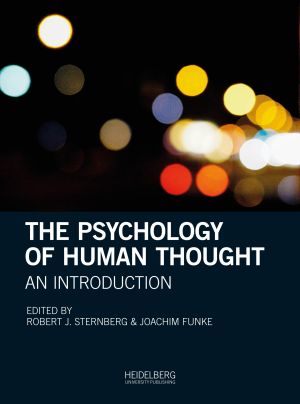Zitationsvorschlag
Glück, Judith: Wisdom, in Sternberg, Robert J. und Funke, Joachim (Hrsg.): The Psychology of Human Thought: An Introduction, Heidelberg: Heidelberg University Publishing, 2019, S. 307–326. https://doi.org/10.17885/heiup.470.c6679
Lizenz (Kapitel)

Dieses Werk steht unter der Lizenz Creative Commons Namensnennung - Weitergabe unter gleichen Bedingungen 4.0 International.
Identifier (Buch)
ISBN 978-3-947732-33-3 (PDF)
ISBN 978-3-947732-34-0 (Softcover)
ISBN 978-3-947732-35-7 (Hardcover)
Veröffentlicht
31.07.2019
Wisdom
- What is wisdom? There are a number of definitions of wisdom in psychological literature. Wisdom is a complex and multifaceted construct, and different definitions tend to emphasize different aspects of it. The most important components of wisdom are (a) broad and deep life experience and life knowledge, (b) an awareness of the variability and uncertainty of human life and a willingness to consider different perspectives, (c) self-reflection, self-knowledge, and self-acceptance, and (d) compassionate concern for others and a motivation to serve a greater good.
- How can wisdom be measured? Current measures are either self-report scales or open-ended performance measures. Self-report scales are easy and quick to administer and score, but very wise people may be more critical of themselves and therefore describe themselves less favorably in such measures than less wise people. Open-ended measures require more time and effort and may not capture emotional aspects of wisdom. An optimal measure should probably combine both approaches.
- Is wisdom a stable person characteristic? Recent research shows that wisdom varies across people, but wisdom also varies across situations: people think more wisely if they take a broader perspective on an issue and consider possible alternative views. An important topic for wisdom research is how to create situations that enable wise decisions and behavior.
- How does wisdom develop? Wisdom is a rare phenomenon—while most people are happy and satisfied, few people become very wise in the course of their lives. Researchers believe that wisdom develops through an interaction of life experiences with certain personal characteristics. People who think deeply about their experiences and try to understand their own behavior are more likely to develop wisdom.
- How can wisdom be fostered? This is a very important question that few studies have investigated yet. Wisdom can be fostered through short-term interventions that lead people to take a broader perspective. Possible long-term interventions include wisdom curricula in education and wisdom-oriented psychotherapy.






